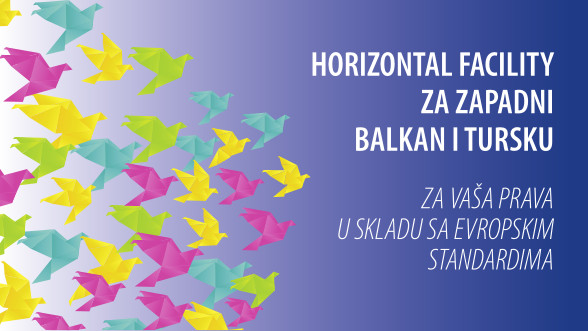One of the key priorities of the Horizontal Facility II is to assist public authorities in the region in their efforts to ensure an independent judiciary and contribute further to improving the quality of justice delivered to the citizens, in accordance with the European standards. The Free Legal Aid services have been promoted in different Beneficiaries, while capacity building for legal professionals have been offered in key areas.
In Montengro mediation is being increasingly used to facilitate collaborative problem-solving between parties involved in a dispute. The Conference on domestic and regional perspectives and challenges in alternative dispute resolution highlighted the positive developments in the field while emphasising the importance of informing citizens and professionals about the benefits of such measures and improving the quality of mediation services.
Bailiffs and Notaries were in the focus of the workshop organised during December, in co-operation with the Chamber of Notaries and Chamber of Public Bailiffs from Montenegro and the Centre for International Legal Co-operation (CILC) from the Netherlands. Different international and regional experiences, as well as important ethical issues concerning the activity of bailiffs and notaries were discussed and clarified during the workshop.
In North Macedonia, the programme is continuing to support access to higher quality of Free Legal Aid (FLA) services for citizens. In this framework an informing and raising awareness campaign on the use of FLA was implemented for one year, including public events, promotional materials, articles and appearances on TV etc. The campaign through different activities and channels reached more than 300 000 people while the use of FLA services increased by 121% during the last year. In order to complement the process of awareness raising on the use of FLA services, a series of capacity building courses were organised, in co-operation with the Bar Association of North Macedonia. The aim of the courses was to prepare lawyers for dealing with cases of domestic violence and justice for children in the framework of the FLA system.
In Serbia, the debate to present the recently achieved results by the High Judicial Council (HJC) in developing internal mechanisms for countering risks of undue influence was organised in co-operation with the Forum of Judges of Serbia. The debate included testimonies from several judges who stressed that this mechanism has already made the HJC more recognisable and visible in protecting their rights.
Media and communication skills, with a special focus on the digital media sphere was the topic of another important workshop for court and prosecution office spokespersons from the appellate jurisdictions of Niš and Kragujevac in Serbia. They acquired knowledge on the significance of timely communication with the media and on dealing with the threats posed by disinformation in the digital sphere, which will contribute to building relationships with journalists so that media outlets become allies of the judiciary, and not the source of influence.
In Albania, the programme is enhancing the capacities of court staff in collecting juridical statistics on court performance. The second regional workshop took place in November with representatives of the district, administrative and appeal courts on the implementation of the new methodology for the collection of judicial statistics based on CEPEJ guidelines. It aimed to support the capacities of court staff with regards to collection of relevant information on court performance, particularly the workload of courts and judges.
Also during november, the Albanian High Inspectorate of Justice (HJI) hosted a delegation of the European Network of Justice Inspection Services (RESIJ) in view of establishing a co-operation agreement and evaluate potential application for membership in the RESIJ. The delegation had the opportunity to discuss with justice actors in Albania core issues surrounding justice reform, including with the High Inspector of Justice in Albania - Artur Metani, as well as during meetings in the National Assembly in Albania and the main justice governing institutions namely the Albanian High Judicial Council, Albanian High Prosecutorial Council, the School of Magistrates and selected courts in Tirana and Vlora.



